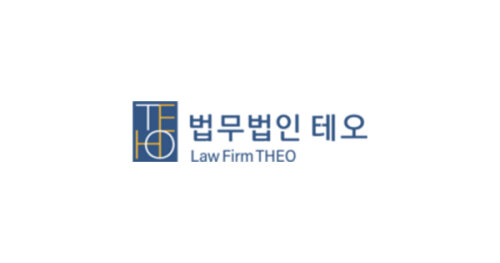Best Real Estate Due Diligence Lawyers in Yeonsu-gu
Share your needs with us, get contacted by law firms.
Free. Takes 2 min.
Free Guide to Hiring a Real Estate Lawyer
List of the best lawyers in Yeonsu-gu, South Korea
About Real Estate Due Diligence Law in Yeonsu-gu, South Korea
Real estate due diligence in Yeonsu-gu, Incheon, follows the same legal framework that applies across South Korea, but it is shaped by local planning, development and zoning realities. Yeonsu-gu includes large planned developments such as the Songdo International Business District and parts of the Incheon Free Economic Zone. These development contexts create specific risks and regulatory steps to confirm before buying, selling, leasing or financing property.
Due diligence means a structured review of legal, physical, tax and regulatory matters that affect property value and use. The review aims to confirm ownership and title, identify encumbrances and restrictions, check zoning and building permissions, verify lease and management obligations, assess environmental and construction risks, and quantify tax liabilities and transfer costs. A careful process reduces the chance of surprise liabilities after closing and informs negotiation and contract drafting.
Why You May Need a Lawyer
Real estate transactions can involve complex legal and factual issues. You should consider hiring a lawyer when you face any of the following situations: buying or selling high-value property, investing in pre-sale apartments or development projects, entering or reviewing long-term jeonse or commercial leases, resolving boundary or title disputes, dealing with encumbrances such as mortgages or attachments, or encountering construction defects or developer insolvency.
Lawyers help by conducting formal title searches, interpreting and negotiating contracts, advising on tax and registration consequences, representing you in communications with sellers, developers and brokers, handling escrow and closing documentation, and representing you in court or arbitration if disputes arise. For foreign buyers, lawyers also help with currency reporting, statutory permissions and communication with Korean authorities.
Local Laws Overview
Key national laws that commonly affect due diligence in Yeonsu-gu include the Act on Registration of Real Estate, Building Act, National Land Planning and Utilization Act, Housing Lease Protection Act, Real Estate Brokerage Act, Real Estate Investment Company Act when relevant, and tax laws administered by the National Tax Service. Local ordinances and development plans set by Incheon Metropolitan City and Yeonsu-gu Office further control land-use, building permits and special district designations.
Special local considerations include the Incheon Free Economic Zone regulatory framework that applies to parts of Yeonsu-gu, additional master-plans for Songdo developments, and infrastructure or reclaimed land issues in coastal zones. Zoning categories and permitted uses under local land-use plans determine development potential and restrictions. Building permits and certificates of occupancy confirm compliance with the Building Act and local building regulations.
Lease security in South Korea is shaped by the Housing Lease Protection Act, which gives protection to tenants with registered rights and sets out priorities among creditors when a landlord faces bankruptcy. For condos and multi-unit buildings, the Act on the Ownership and Management of Condominium Buildings governs common area rights, management fees and the operation of owners associations. Property taxes, acquisition taxes and capital gains taxation schedules are administered at national and municipal levels and must be calculated during a transaction.
Frequently Asked Questions
How do I confirm who legally owns a property in Yeonsu-gu?
Obtain an official real estate register extract from the local real estate registry office. The register shows the registered owner, mortgages, liens, attachments and statutory rights. A lawyer or authorized agent can order a formal title report and interpret entries that may be ambiguous or show pending litigation.
What encumbrances should I look for in a title search?
Look for mortgages, seizure orders, court attachments, servitudes and easements, priority liens for taxes or public utility charges, right-of-way entries, and any agreements registered against the property. Also review restrictions due to redevelopment, expropriation proceedings or public works plans which may affect the property’s value or use.
Do I need to check local zoning and building permissions?
Yes. Confirm the zoning designation, permitted uses, floor-area ratio, building coverage ratio and any special district rules. Obtain copies of building permits, certificates of occupancy and records of any violations or outstanding orders from the Yeonsu-gu or Incheon building authorities.
How are tenant rights and jeonse deposits protected?
Tenant protections under the Housing Lease Protection Act include priority rights for registered leases in case of landlord bankruptcy and limits on unilateral contract changes. For high-value jeonse deposits, confirm whether the lease has been registered in the real estate register and whether the tenant’s rights were properly notified to third parties.
What environmental or construction risks should I investigate?
Assess potential soil contamination, flood risk, reclamation-related settlement, and evidence of construction defects. For redevelopment and pre-sale projects, review construction contracts, builder warranties, progress reports and any existing litigation against developers. Where contamination or structural risk is plausible, commission environmental and structural surveys.
Are there restrictions or additional steps for foreign buyers?
Foreigners can generally buy urban real estate in South Korea, but they must report foreign exchange transactions as required and, in limited cases, seek local permission for certain land types such as agricultural or military buffer zones. Foreign buyers should also confirm taxation implications, review residency-related tax exposure and work with a Korean lawyer or bilingual advisor to complete registration properly.
What taxes and fees apply when purchasing property in Yeonsu-gu?
Common taxes and fees include acquisition tax, registration tax, value-added taxes for some transactions, local taxes and potential capital gains tax on resale. Transaction costs also include brokerage fees, legal fees and expenses for surveys and certificates. A lawyer or tax advisor can estimate tax liabilities and suggest structures to optimize taxes lawfully.
How long does registration take after closing and who handles it?
Registration at the real estate registry typically occurs shortly after the deed is executed and taxes are paid, but timing can vary. A legal representative or licensed conveyancer usually files required documents for registration. Delays can occur if documentation is incomplete, taxes are unpaid or priority disputes arise.
What special risks are associated with pre-sale apartments and redevelopment projects?
Risks include developer insolvency, construction delays, changes in project plans, defects, lien claims by subcontractors, and financing shortfalls. Due diligence should include inspection of developer financials, escrow arrangements for buyers deposits, progress guarantees, and review of condominium management rules and construction warranties.
How do I pick the right lawyer for due diligence in Yeonsu-gu?
Choose a lawyer with proven experience in Korean real estate law, transactional and dispute work relevant to your transaction type. Verify bar membership, read case histories or client references, confirm language ability if you are a non-Korean speaker, understand fee structures - whether flat fee, hourly rate or capped retainer - and ensure good communication about the scope and deliverables of the due diligence.
Additional Resources
Yeonsu-gu Office - for local zoning, building permits and municipal notices.
Incheon Metropolitan City Office - for wider city-level land-use plans and public works information.
Incheon Free Economic Zone Authority (IFEZ) - for rules and master-plans that affect Songdo and adjacent districts.
Ministry of Land, Infrastructure and Transport (MOLIT) - for national statutes, building regulations and land planning policy.
Supreme Court Real Estate Registry (local district court registry office) - for official title and registration documents.
National Tax Service and Incheon Regional Tax Office - for tax guidance, tax notices and payment procedures.
Korea Appraisal Board and certified local appraisers - for independent valuation and market data.
Bar Association - to verify lawyer credentials and find specialized real estate attorneys.
Next Steps
Start by gathering basic documents: the seller’s title certificate, recent register extract, copies of building permits and occupancy certificates, any existing leases and management contracts, and recent tax payment records. Prepare a short summary of your objectives - purchase, investment, lease, financing - and any known concerns about the property.
Engage a local lawyer early - ideally before signing a letter of intent or preliminary agreement. Ask the lawyer to run a title and encumbrance check, review zoning and permit status, evaluate lease and tenant priorities, advise on taxes, and recommend any technical inspections such as structural surveys or environmental tests. Negotiate contract terms that allocate key risks and specify remedies for defects or defaults.
If you are not fluent in Korean, arrange for a qualified translator or a bilingual lawyer to ensure you understand contract terms and municipal documents. Keep records of all communications and receipts related to the transaction. If a dispute arises, consider mediation or arbitration clauses for faster resolution, and use litigation only when necessary.
Finally, remember this guide provides general information and does not replace legal advice tailored to your situation. Contact a qualified real estate lawyer in Yeonsu-gu or in Incheon for a detailed, transaction-specific due diligence plan and representation.
Lawzana helps you find the best lawyers and law firms in Yeonsu-gu through a curated and pre-screened list of qualified legal professionals. Our platform offers rankings and detailed profiles of attorneys and law firms, allowing you to compare based on practice areas, including Real Estate Due Diligence, experience, and client feedback.
Each profile includes a description of the firm's areas of practice, client reviews, team members and partners, year of establishment, spoken languages, office locations, contact information, social media presence, and any published articles or resources. Most firms on our platform speak English and are experienced in both local and international legal matters.
Get a quote from top-rated law firms in Yeonsu-gu, South Korea — quickly, securely, and without unnecessary hassle.
Disclaimer:
The information provided on this page is for general informational purposes only and does not constitute legal advice. While we strive to ensure the accuracy and relevance of the content, legal information may change over time, and interpretations of the law can vary. You should always consult with a qualified legal professional for advice specific to your situation.
We disclaim all liability for actions taken or not taken based on the content of this page. If you believe any information is incorrect or outdated, please contact us, and we will review and update it where appropriate.









